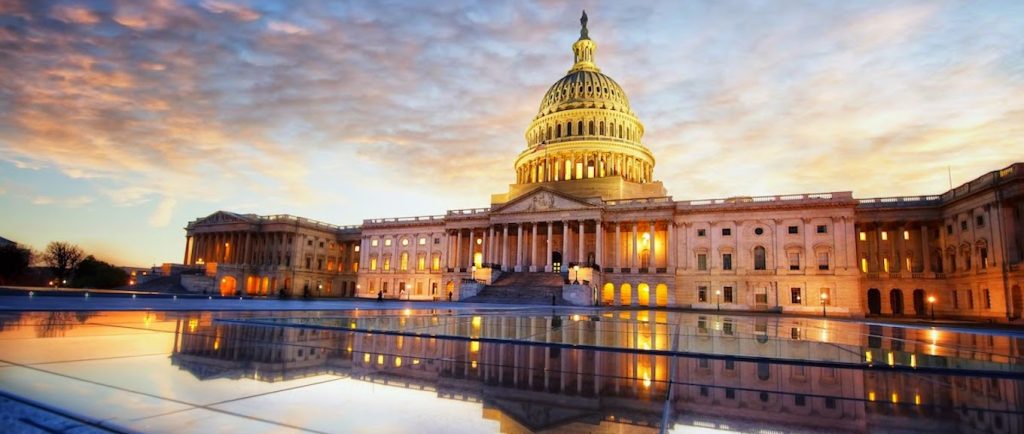Urges Lawmakers to Scrutinize PCAOB Deal with Chinese Auditors
WASHINGTON — The Coalition for a Prosperous America (CPA) released a statement following a House Financial Services Committee hearing on combating the economic threat from China, which saw both Democrats and Republicans express concern and call for policies to address China’s ability to raise money from U.S. capital markets and U.S. investors.
Last year, CPA Chief Economist Jeff Ferry testified in front of the House Committee on Financial Services Subcommittee on Investor Protection, Entrepreneurship and Capital Markets. The hearing, titled “Investing in our Rivals: Examining U.S. Capital Flows to Foreign Rivals and Adversaries Around the World,” looked at the risks posed to American investors by nations that are adversarial and hostile to U.S. interests—most notably Russia and the People’s Republic of China (PRC).
Ferry’s testimony focused on the problem of U.S. investor exposure to Chinese securities, the risks this poses to U.S. economic and national security and potential solutions that should be considered. In particular, Ferry called on Congress to address the bulk of “bad actor” Chinese companies that are still present in American passive investment products. For example, China’s SenseTime was sanctioned by the U.S. government, which banned all U.S. investments in the firm because it “developed facial recognition programs that can determine a target’s ethnicity, with a particular focus on identifying ethnic Uyghurs.” Incredibly, FTSE Russell announced in January that, following confirmation from the Office of Foreign Assets Control (OFAC), they would evaluate SenseTime for index eligibility for the FTSE Global Equity Index Series March 2023 semi-annual review.
“U.S. investors are inadvertently subsidizing Chinese companies involved in activities that are contrary to the national security, economic security, and foreign policy interests of the United States,” testified Ferry. “We are also subsidizing the economic growth of the United States’ top global adversary.”
In August 2022, CPA released its findings regarding the Thrift Savings Plan’s (TSP) new Mutual Fund Window. As first reported by The Wall Street Journal, CPA’s deep-dive into the Mutual Fund Window’s offerings document serious exposure to companies owned or controlled by the Chinese Communist Party (CCP). Shockingly, the FRTIB admitted publicly that it has not conducted any due diligence to evaluate whether these mutual funds include Chinese-owned entities that pose national security risks or fund Chinese companies engaged in human rights violations.
CPA’s research also found that five of the largest international funds in the Window had an average weight of 22 percent toward Chinese companies, and all five funds held companies listed on the U.S. Department of Treasury’s list of Chinese Military-Industrial Companies, the Department of Commerce Entity List, the Commerce Department’s Unverified list, or the Department of Defense Chinese Military Companies list. Companies are placed on these lists because they threaten U.S. national interests, have been involved in serious technology theft, and/or are implicated in the genocide of the Uyghur people.
In December 2022, CPA released a statement after the Public Company Accounting Oversight Board (PCAOB) announced Chinese auditors were in full compliance with U.S. securities regulations. As a result, more than 170 Chinese companies, many with overt ties to the Chinese Communist Party (CCP), will be able to continue operating on U.S. stock exchanges and maintain access to more than $1 trillion in market capitalization. In August, CPA expressed concerns with PCAOB’s original announcement that it had struck a deal with Chinese regulators.
Under the Holding Foreign Companies Accountable Act (HFCAA), Chinese and other foreign companies traded on U.S. exchanges must be delisted if, in three consecutive years, they do not allow the PCAOB to oversee their audits in the same way American and other foreign companies are required to do so. It also requires public companies to disclose whether they are owned or controlled by a foreign government, including the CCP.
Following this week’s House Financial Services Committee hearing, CPA is urging Congress to crack down on outbound investment to China, including via U.S. capital markets and passive investment products like Exchange Traded Funds (ETFs) and Mutual Funds. Additionally, CPA urges the Committee to conduct rigorous oversight of the PCAOB to ensure it is complying with the full intent of the HFCAA. Specifically, CPA is calling for the following actions and policies:
- Rigorous oversight of PCAOB on compliance with HFCAA and Chinese audits
- Legislation on outbound investment review
- Legislation to expand and codify capital markets sanctions on Chinese Military Industrial Complex Companies
- Legislation to strengthen, synchronize, and close loopholes in the existing U.S. sanctions and place more Chinese state-controlled companies on the SDN list
- Legislation to expand the disclosure requirements for companies in indexes and included in ETFs and mutual funds
- Legislation to remove Chinese companies from the TSP
- Legislation to bar investment in bad-actor Chinese companies from passive investment products, including ETFs and mutual funds












